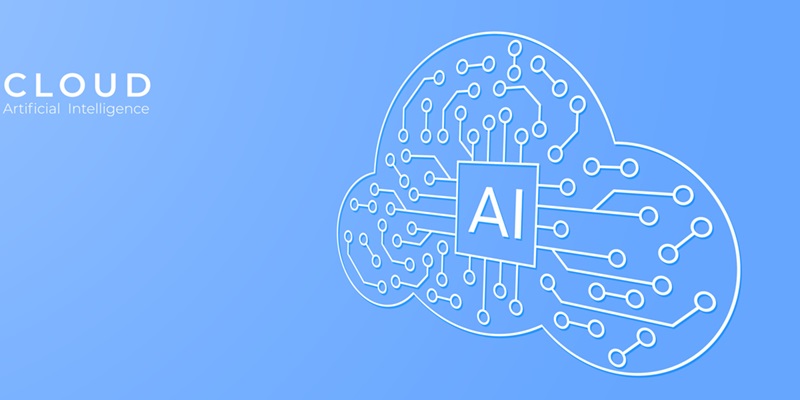In today’s rapidly evolving technological landscape, organizations are increasingly turning to artificial intelligence (AI) to gain a competitive edge. However, effectively harnessing the power of AI requires a robust infrastructure capable of handling the complexities of data processing and analysis. Cloud migration for AI infrastructure offers a multitude of benefits, ranging from increased scalability and flexibility to improved cost-efficiency and performance. In this article, we will delve into the advantages of adopting cloud-based solutions for AI infrastructure.
Increased Scalability and Flexibility
Cloud migration empowers organizations to scale resources on-demand. This flexibility is crucial for AI workloads, which often experience unpredictable fluctuations in demand. Cloud platforms provide the agility needed to rapidly increase or decrease computing resources, ensuring that AI models can handle varying workloads efficiently. Scaling becomes seamless as the cloud infrastructure automatically adjusts to resource demands, enabling organizations to optimize their AI systems’ performance.
Improved Cost Efficiency and Performance
Traditional on-premises infrastructure comes with significant upfront costs for hardware and maintenance. Additionally, managing and upgrading these systems can be time-consuming and expensive. Cloud-based AI infrastructure operates on a pay-as-you-go model, allowing organizations to only pay for the resources they use. This approach offers cost efficiency as organizations can scale up or down as needed, eliminating the need to invest in excess hardware. Furthermore, cloud providers often offer pricing models that are tailored to AI workloads, further optimizing cost efficiency.
One of the key benefits of cloud migration for AI infrastructure is the ability to scale resources on demand. As the amount of data and complexity of AI models increase, organizations require vast computing power to process and analyze information. Cloud platforms provide organizations with the capability to store and process large datasets, enabling AI models to learn and make predictions more effectively. This scalability ensures that organizations can meet the demands of AI workloads without compromising system performance.
Challenges of managing and storing large datasets on-premises
Intelligent systems often require access to vast amounts of data. However, managing and storing such large datasets on-premises can pose significant challenges. On-premises infrastructure may have limited storage capacity, making it difficult to handle the ever-growing volume of data required for AI applications. Additionally, data backups and disaster recovery can be complex tasks on-premises. Cloud migration provides a solution to these challenges by offering scalable, secure, and reliable storage infrastructure for large datasets.
The role of cloud platforms in storing and processing large datasets
Cloud platforms play a vital role in enabling effective learning and predictions for AI models. By leveraging the storage capabilities provided by the cloud, organizations can store vast amounts of data without worrying about limitations. Furthermore, cloud platforms offer robust data processing capabilities, ensuring that AI models can analyze and learn from data quickly and efficiently. This combination of storage and processing power provided by the cloud enables AI models to train on larger datasets, leading to more accurate predictions and insights.
Seamless integration with other cloud services
Cloud-based AI infrastructure allows for seamless integration with other cloud services, such as data analytics or machine learning tools, further enhancing the flexibility and capabilities of the system. Organizations can leverage these services to extract valuable insights from their AI models or utilize pre-trained models to enhance their own applications. This integration eliminates the need for complex integration processes and enables organizations to maximize their AI investments.
Cost-efficiency of cloud-based solutions
Cloud-based AI infrastructure operates on a pay-as-you-go model. This means organizations only pay for the resources they use, avoiding expensive upfront investments in hardware. Additionally, cloud providers typically offer pricing models specialized for AI workloads, allowing organizations to optimize their costs based on their specific requirements. This cost efficiency makes cloud migration an attractive option for organizations looking to leverage the power of AI without breaking the bank.
High-performance computing capabilities of cloud platforms
Cloud platforms are designed to deliver high-performance computing, ensuring that AI models can process data quickly and efficiently. These platforms are equipped with powerful servers and storage infrastructure capable of handling the immense workloads that AI demands. As a result, organizations can achieve faster training times, quicker predictions, and improved overall system performance. The cloud’s ability to deliver high-performance computing allows organizations to unlock the full potential of their AI models.
Specialized hardware for accelerating AI workloads
Cloud providers offer a range of specialized hardware designed to accelerate AI workloads. Graphics processing units (GPUs) and tensor processing units (TPUs) are two notable examples. These hardware accelerators are designed to handle the intense computational demands of AI algorithms, significantly speeding up model training and inference. By leveraging these specialized hardware options, organizations can reduce processing times, enhance model performance, and achieve optimal results.
Importance of careful planning and execution for a successful migration
Successful migration requires careful planning and execution to navigate the complexities of the process. Organizations must assess their AI infrastructure needs, evaluate the compatibility of their AI models with the cloud platform, and thoroughly understand the migration process and potential challenges. It is crucial to create a detailed migration plan, considering factors such as data storage, model deployment, and security requirements. A well-thought-out strategy will ensure a smooth transition to the cloud, minimizing any disruptions and maximizing the benefits of cloud-based AI infrastructure.
Cloud migration for AI infrastructure offers a host of advantages, revolutionizing the way organizations harness the power of artificial intelligence. From increased scalability and flexibility to improved cost-efficiency and performance, the benefits of cloud-based solutions are undeniable. By addressing challenges related to managing large datasets, leveraging the computing power of the cloud, and integrating seamlessly with other services, organizations can unlock the full potential of their AI investments. However, it is essential to approach migration with careful planning and execution to reap the rewards of cloud-based AI infrastructure effectively. With the right strategy, organizations can take their AI capabilities to new heights, achieving unprecedented insights and driving innovation in their respective industries.

